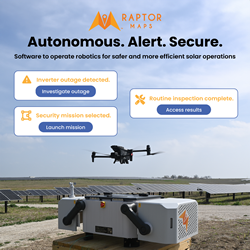Virginia Tech Wins EcoCAR Competition With An Extended-Range Electric Vehicle
The Ohio State University and the University of Waterloo Finish Second and Third
Washington (June 17, 2011) - Students from Virginia Tech University learned last night that their teamwork, perseverance and hard work have led to top honors when they were named the overall winners of EcoCAR: The NeXt Challenge after designing and building an exceptional extended-range electric vehicle (EREV) using E85 (ethanol).
Throughout the three-year competition, the Virginia Tech team hit incremental goals that helped the vehicle achieve fuel efficiency of 81.9 miles per gallon gasoline equivalent, or 70 percent over the stock vehicle, positioning them above the rest. Virginia Tech's EREV out-performed its competitors earlier this month when it was put through a series of safety and technical tests at GM's Proving Ground in Milford, Mich., tests similar to those conducted on GM production vehicles.
"Designing an extended-range electric vehicle using E85 was challenging, but clearly worth it in the end," said Patrick Walsh, co-team leader for Virginia Tech. "The entire team has put so much time and effort into designing and refining our vehicle, and we've gained valuable knowledge and hands-on experience that will prepare us for our engineering careers."
"The ingenuity and dedication shown by the students of Virginia Tech in building this next-generation vehicle will help them launch careers as leaders in the clean energy field," said U.S. Secretary of Energy Steven Chu. "With the experience and skills these innovative students have gained through the EcoCAR competition, they will help reduce our nation's reliance on oil imports and keep U.S. industries competitive in the global marketplace."
"Congratulations to Virginia Tech! During the past three years, they have faced many challenges and consistently found smart and creative ways to address them," said Mary Barra, senior vice president, global product development, General Motors. "The automotive industry is demanding these types of engineers, especially when advanced propulsion technologies are evolving so quickly. It's exciting to know that these students will come to the table with fresh ideas that will help us move toward a cleaner, more fuel efficient future."
Taking second place, also with an E85 EREV was The Ohio State University . The Ohio State was a strong competitor and was very well balanced in all aspects of consumer acceptability, fuel economy and acceleration categories.
The University of Waterloo took third place with a hydrogen fuel cell plug-in hybrid electric vehicle. Working with an extremely complex architecture was very challenging and the team was the first in the history of Advanced Vehicle Technology Competitions to run a fuel cell vehicle in all the dynamic events during finals.
Virginia Tech competed against 15 other universities to take home the top prize of the three-year competition sponsored by the U.S. Department of Energy and General Motors (GM). The competition challenged participating engineering students from across North America to re-engineer a GM-donated vehicle to minimize the vehicle's fuel consumption and emissions, while maintaining its utility, safety and performance.
For photos and videos from the third and final year of the EcoCAR competition, and results from testing and inspections at GM's Proving Ground in Milford, MI, please visit EcoCAR's Inside the Green Garage blog and photos. Additional background about the competition is available on the EcoCAR website.
About EcoCAR
EcoCAR is a three-year competition that builds on the 23-year history of DOE advanced vehicle technology competitions by giving engineering students the chance to design and build advanced vehicles that demonstrate leading-edge automotive technologies. General Motors provides production vehicles, vehicle components, seed money, technical mentoring and operational support. The U.S. Department of Energy and its research and development facility, Argonne National Laboratory provides competition management, team evaluation, technical and logistical support. Through this important partnership, EcoCAR aims to inspire and support the next generation of scientists and engineers to unite around the common goal of sustainable mobility.
Featured Product

Raptor Maps - The integrated operating system for end-to-end solar management
Operate autonomous drones and other robotics technology on your solar farms with Raptor Maps' robotics operations platform. Our end-to-end solution allows you to build and schedule data collection missions, to analyze collected data through our analytics engine, and to address identified issues through our remediation intelligence suite. From construction monitoring to substation inspections to SCADA-alert generation missions, Raptor Robotics gives your team unparalleled insights into the health and status of your project. Improve the safety, efficiency, and scale of your operations with Raptor Robotics.
